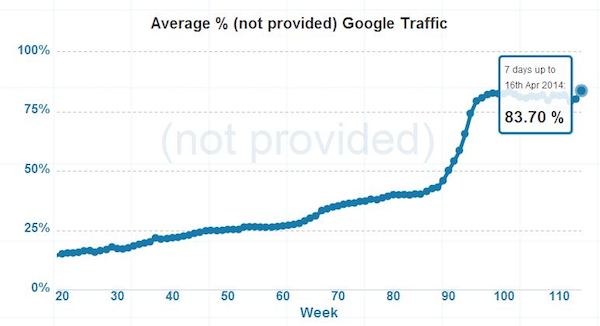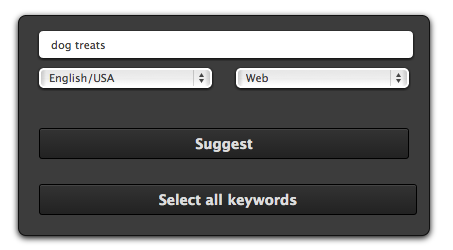The other week, we went a little crazy – it’s cool, we came back – over a rumor that Google would start blocking paid keyword data for AdWords advertisers like it did with “(not provided)” in organic data.
Frankly, I’ve never been a fan of keyword data. It makes us weak. It encourages us to rely on meaningless metrics instead of tracking key-performance indicators (KPIs) that actually matter.
But no matter what side of the fence you stand on, we’ve got a situation on our hands. Keywords still matter; Google is just making it harder for us to find them.

Harder, but not impossible. Here are four tools you can use for keyword research in the age of vanishing keyword data.
Small AdWords Campaigns
Keyword data in paid campaigns isn’t going away. That data will no longer get passed to your analytics provider, but you can still access your paid keyword performance in the AdWords interface, making this a great way to test keywords first before implementing them in your strategy. If your paid search efforts are also synced with your marketing automation software, you can see the quality of lead that these keywords brought, too.
Start in small chunks with a group of keywords at the time. If your budget is really tight, localize it to your city, state, or region.
Google Webmaster Tools
Even though you can’t see what happened with this keyword after it came to your site (Did it bounce? Did it convert?), Google Webmaster Tools is one of the only consistently reliable sources to get keyword data, CTR, and average rankings. Armed with this data, you know, at least, what’s working for you currently and it provides a good starting point.

High impressions and rankings but low CTR? Make sure your result matches the query that people are searching for. Just like in AdWords quality score, relevancy here is critical. Your goal isn’t to have the highest ranking; it’s to have the most attractive listing in the search results.
UberSuggest
UberSuggest is one of my favorite tools because of the wealth of things you can do with the data once you have it. In it’s simplest form, it’s a great way to see trends in what Google is recommending people search for based on your keyword root.
Start with your most basic keyword: Let’s use “dog treats.” Select all keywords.

Click “Get.”

And copy and paste every suggestion into in XLS.

Do this for slight variations of that keyword, like “dog treat.” Then, group the duplicates. The more times it appears, the more often Google recommends it and that’s a key signal for you that that keyword should be in your keyword strategy. Note that these will be better for longer tail keywords.
User Interviews or Surveys
User interviews will take more time than pulling data from a tool, but you’re going to get more valuable data because you’re finding out how your target audience searches for products or services like yours. Tools are great, but they can’t get that contextual.
First, find your users to interview.
If it’s a more general audience, you could easily pull this off by hanging out at your local coffee shop and buying a small coffee for someone for 10 minutes of their time. If it’s more specific, head to LinkedIn Answers or Quora and look for people asking questions about the industry.
You can also join LinkedIn Groups related to your industry or set up a small LinkedIn Sponsored Post or LinkedIn Ad campaign soliciting people for their feedback.
Then, talk to them.
With 10 or 15 minutes for each interview, you’re going to cover a lot of ground to understand exactly how your target audience is shopping for your product or service. Since it’s keywords you’re looking for, ask them what they searched for when they were shopping around. Give them time to answer; they’ll probably tell you more than one.
You can also streamline this by setting up a survey, but you’ll miss the value of one-to-one conversations, which gives you more detailed information.
What did I miss? What are some other tools you use for keyword research?




